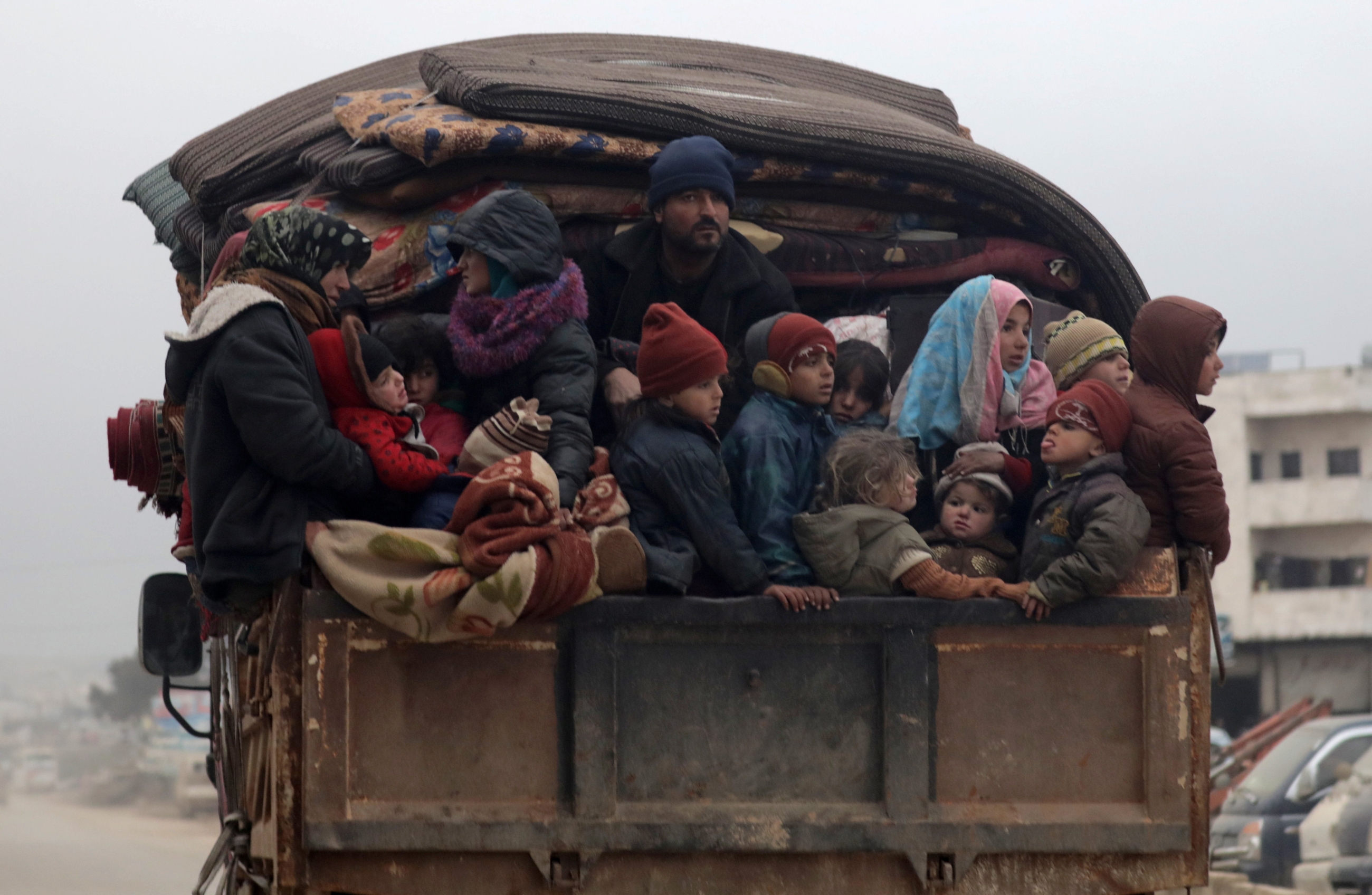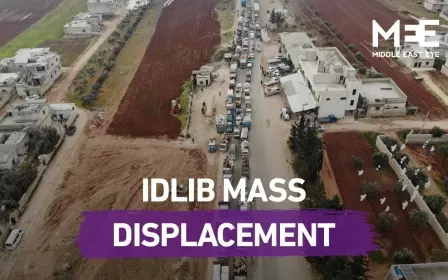UN: Syrian government offensive displaces more than 800,000 in Idlib

Syrian government forces, backed by Russia, have displaced more than 800,000 Syrians in northwestern Idlib province, the United Nations said on Thursday.
This latest figure comes as President Bashar al-Assad's forces, flanked by Iran-backed militias and supported by Russian airpower, ramp up their campaign to take the last remaining opposition-held area.
"Of more than 800,000 people who have been displaced in northwest Syria from December 2019 to 12 February 2020, some 60 per cent are estimated to be children," said the United Nation's humanitarian coordination office, OCHA.
Ahmed Mahmoud, Islamic Relief's country director in Syria, told Middle East Eye that the mass displacement taking place in Idlib was "unprecedented".
"The level of displacement ... [has] not been seen on this level since we began operating in 2012," said Mahmoud.
'Huge lines of people are fleeing in Idlib, people crowding on trucks carrying what they can. I saw for myself how children were being carried by old people'
- Ahmed Mahmoud, Islamic Relief
"Huge lines of people are fleeing in Idlib, people crowding on trucks carrying what they can. I saw for myself how children were being carried by old people."
Mahmoud also highlighted how the cold weather is further compounding the suffering on the ground, as thousands continue to head northward towards the Turkish border in the hope of escaping Syrian bombardment.
"Temperature levels have decreased and it has been snowing in Idlib. Many people are settling in open areas, in makeshift 'tents'," said Mahmoud.
"We have also received several reports of children dying from the cold in northern Idlib, and witnessed people who have suffered burns in their camps, because they are using whatever fuel they can, due to the increase in fuel prices."
David Swanson, the regional UN spokesperson for Syria, told Reuters on Thursday that the exodus was expected to "continue over the coming days with thousands of people on the move as whole towns and communities" were fleeing to the safety of areas near the Turkish border.
"Residents are fleeing by the thousands in open trucks or by foot; often at night to escape detection despite the bitter cold temperatures," Swanson said.
Assad's forces have chipped away at the rebel-held area since December, taking 600 square km and killing over 350 civilians.
Many of the estimated three million Syrians in Idlib have been displaced from other former rebel-held areas, which have been recaptured by Assad over the course of the nearly nine-year civil war.
The situation in Idlib has been complicated further by tensions rising between Ankara and Damascus after 13 Turkish soldiers were killed in government shelling in Idlib in recent days.
Earlier this week, Turkish President Recep Tayyip Erdogan accused Russia of committing "massacres" in Idlib and threatened to strike government forces in Syria.
In return, Moscow accused Ankara of failing to honour the 2018 de-escalation deal signed between the two, with Kremlin spokesman Dmitry Peskov saying the Turkish side "had taken upon itself an obligation to neutralise terrorist groups" in Idlib.
Under the bilateral agreement, militant groups were required to withdraw from a demilitarized zone ringing Idlib province.
Middle East Eye propose une couverture et une analyse indépendantes et incomparables du Moyen-Orient, de l’Afrique du Nord et d’autres régions du monde. Pour en savoir plus sur la reprise de ce contenu et les frais qui s’appliquent, veuillez remplir ce formulaire [en anglais]. Pour en savoir plus sur MEE, cliquez ici [en anglais].




